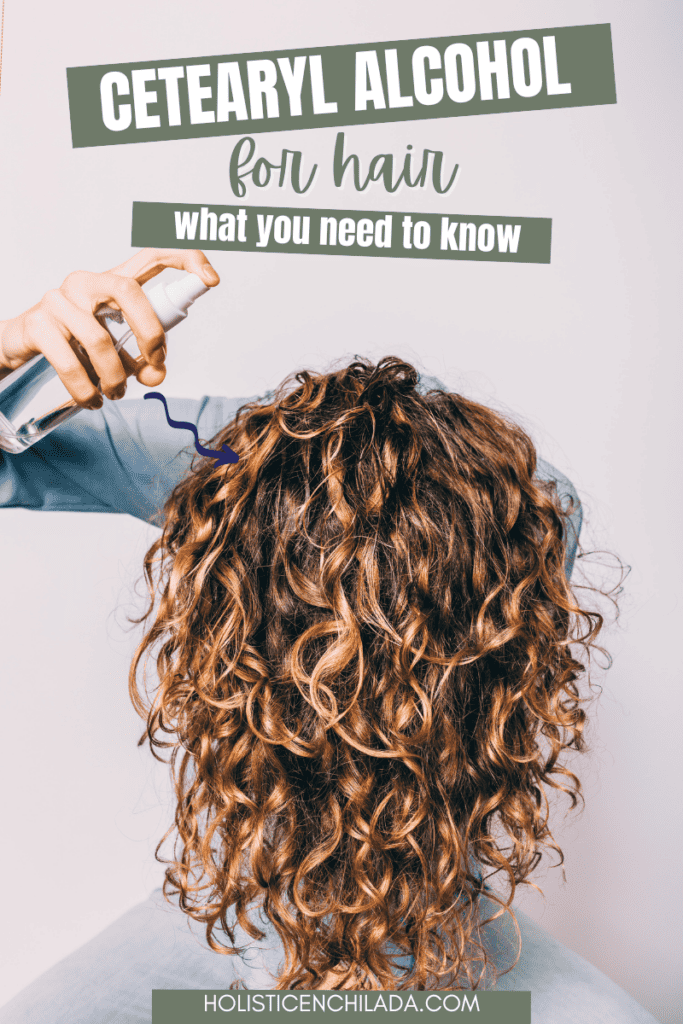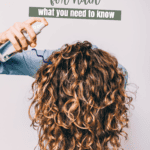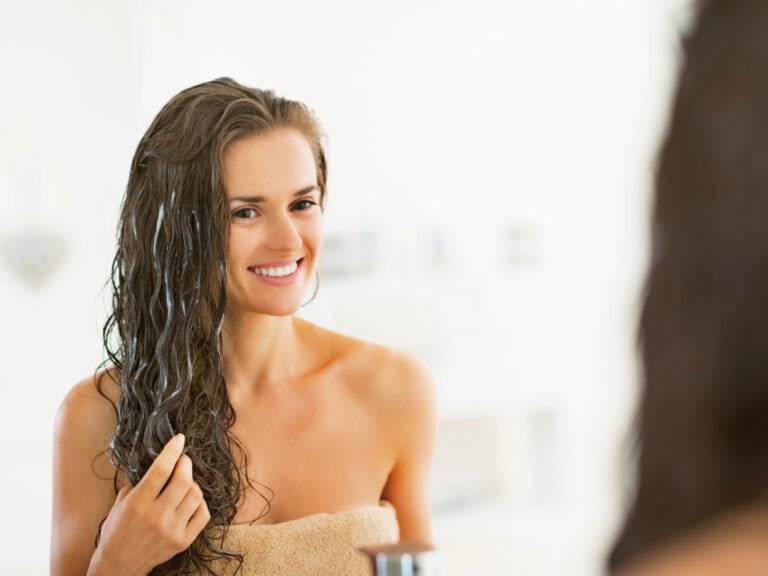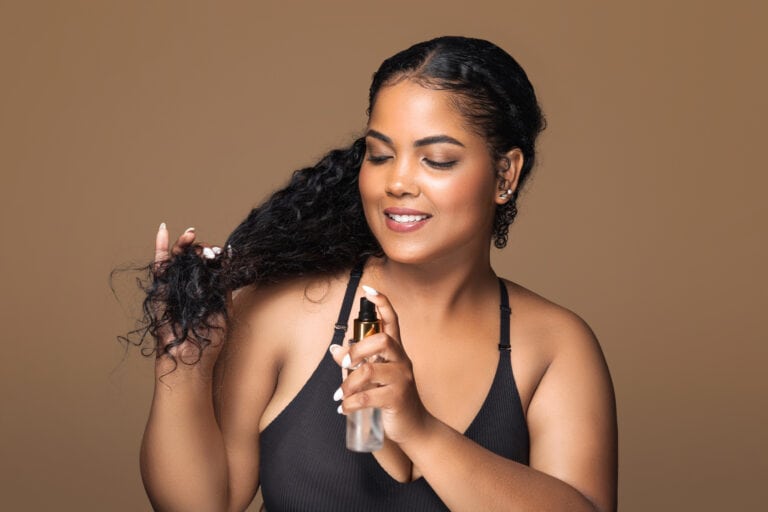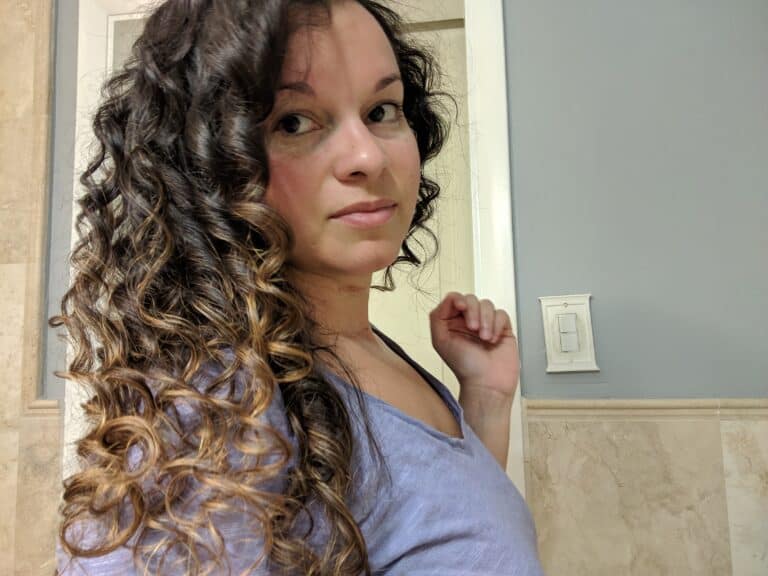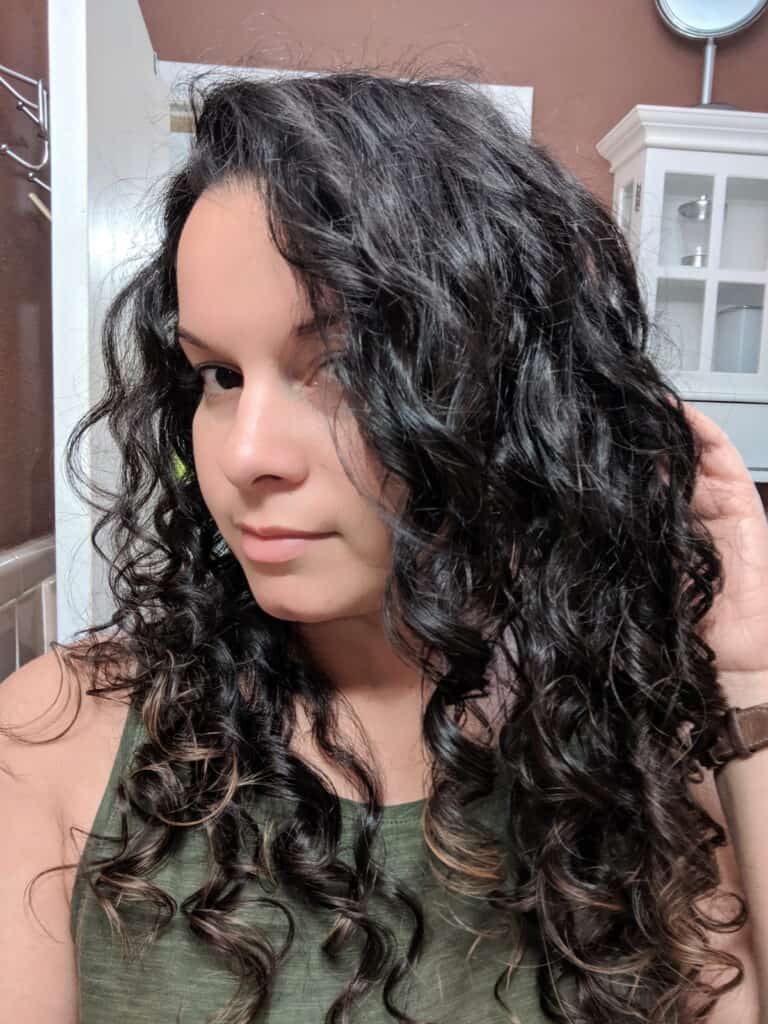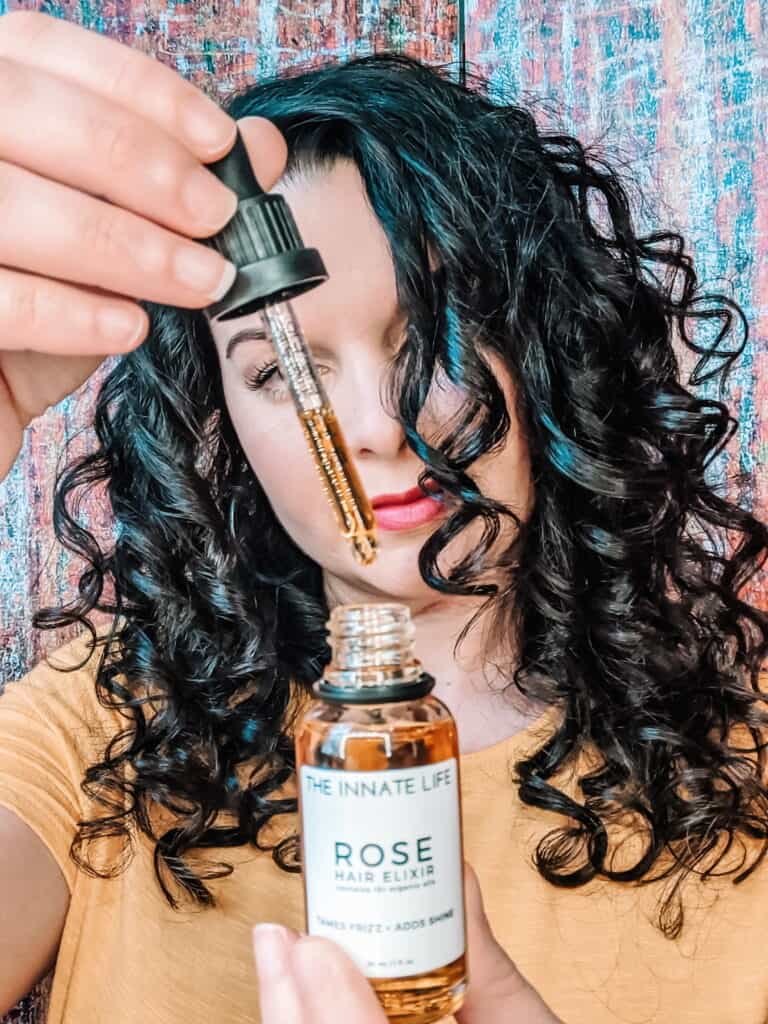Cetearyl Alcohol for Hair: Here’s What You Need to Know
This post may contain affiliate links, and I will earn a commission if you purchase through these links. Please read the disclosure policy for more details.
If you want gorgeous, healthy hair, understanding what’s in your hair products is essential. So, when you’ve been looking at the ingredient list on your shampoo, conditioner, or hair mask, you might have seen Cetearyl Alcohol listed and wondered, ‘Isn’t alcohol bad for your hair?’
People often think alcohol is bad for hair, especially if it’s curly, dry, or damaged, but that’s only partly true. ‘Alcohol’ is a generic term for several different forms of alcohol, and some of them are very beneficial for healthy hair.
Cetearyl Alcohol is one of these good alcohols and is commonly found in many personal care products.
In this article, we’ll take a look at the difference between good and bad alcohols for hair and explain the benefits of Cetearyl Alcohol in your hair care routine.
What Is Cetearyl Alcohol?
Cetearyl Alcohol is a long-chain fatty alcohol that’s often used as an ingredient in cosmetic products, skin and haircare products.
It’s a white, flakey, waxy solid that’s derived naturally from plant extracts like palm oil, coconut oil, or corn oil. As well as being naturally present in many plants, it can also be made synthetically in a lab.
You’ll find this ingredient in hundreds of personal care products, including bath soap, makeup, shampoo, and more. It is also listed on product labels as Cetostearyl Alcohol or C16-18 Alcohol.
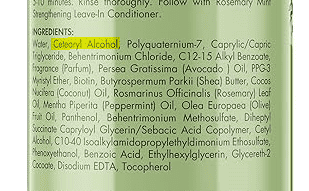
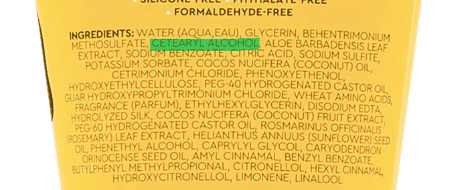
How Does Cetearyl Alcohol Work in Hair Products?
Cetearyl Alcohol acts as a moisturizer in many hair care products. Its chemical structure allows it to penetrate the hair shaft, delivering hydration deep within the strands where it’s needed and giving you soft, touchable tresses.
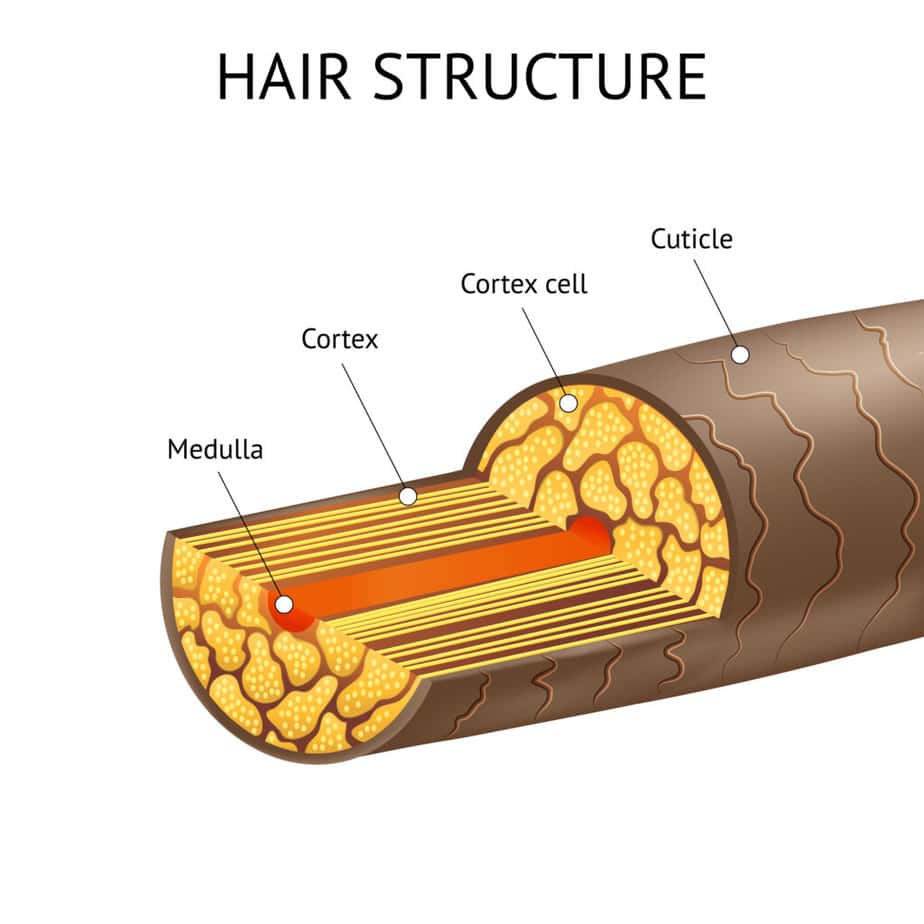
In addition to this, it controls the product’s texture, emulsifies the ingredients, and prevents separation in the bottle. It also helps stabilize foams, making it a great addition to styling mousses.
Is Cetearyl Alcohol Bad for Hair?
You’ve probably heard that alcohol is bad for hair because it has a drying effect. That’s partly true, but there are many types of alcohol, and not all alcohols are bad for your hair.
There are two main kinds of alcohol in haircare products. Short-chain alcohols, like ethanol, help products like hair sprays or mousses set quickly on your hair. This quick-drying effect is great for styling but can also dehydrate your strands.
If you want to use styling products like mousse or hair spray to create your style, avoiding drying alcohols entirely is impossible. However, if you have curly, dry, or damaged hair, it’s better to choose alcohol-free products if they’re available.
Drying alcohols used in hair products include the following:
- Alcohol Denat
- Denatured Alcohol
- Ethanol
- Ethyl Alcohol
- Propanol
- Propyl Alcohol
- SD Alcohol
- SD Alcohol 38B
- SD Alcohol 39B
- SD Alcohol 40
- SD Alcohol 40-2
On the other hand, long-chain fatty alcohols don’t have the same drying effect. In fact, this alcohol group does the opposite – it helps moisturize your mane.
Fatty alcohols are a fantastic choice for dry and damaged locks, including curly hair types, thanks to their hydrating and smoothing properties.
A fatty alcohol like Cetearyl Alcohol and Cetyl Alcohol can also be used as an emulsifier and thickening agent in skin and hair care products.
So, if you see hair care products labeled with the following ingredients, you’ll know that they’re safe to use on your curly hair:
- Behenyl Alcohol
- Cetearyl Alcohol
- Cetyl Alcohol
- C12-16 Alcohol
- Lauryl Alcohol
- Myristyl Alcohol
- Oleyl Alcohol
- Stearyl Alcohol

Is Cetearyl Alcohol Safe for Curly Hair?
Cetearyl Alcohol has been thoroughly tested by well-respected organizations, and the results have shown that it is non-toxic, safe for general health.
It’s also been shown to be a non-mutagenic chemical agent, which means it won’t cause the DNA changes that can lead to certain diseases like cancer.
Cetearyl Alcohol is suitable for all hair types, including wavy, coily, and curly hair, and is ideal for use on dry and damaged hair. It won’t have the same drying effect as short-chain alcohols, so it’s also safe for chemically treated hair, including permed and colored hair.
This ingredient is very gentle on the skin and is suitable for most people who have sensitive skin. It’s also non comedogenic, which makes it less likely to cause blocked pores and scalp acne.
Benefits of Cetearyl Alcohol for Hair
Cetearyl Alcohol has several benefits for hair, which makes it a popular ingredient in hair care products:
Moisturizing and Smoothing
Cetearyl Alcohol has excellent moisturizing properties. Because its molecular structure can easily penetrate your hair shafts, it helps them retain moisture so your mane is softer, smoother, and more manageable.
This makes it ideal for curly hair products, as this hair type can often be prone to dryness.
Easier Detangling
As well as making your tresses softer, Cetearyl Alcohol provides additional slip that makes detangling easier and helps reduce breakage.
Minimize Frizz
Cetearyl Alcohol tames unruly hairs and minimizes frizz by smoothing down the hair cuticle, giving your hair a sleeker appearance.
Easier Application
Because Cetearyl Alcohol is an emulsifier, it stabilizes products so that the formulation doesn’t separate. This makes it easier to apply the product evenly which also helps it work more effectively.
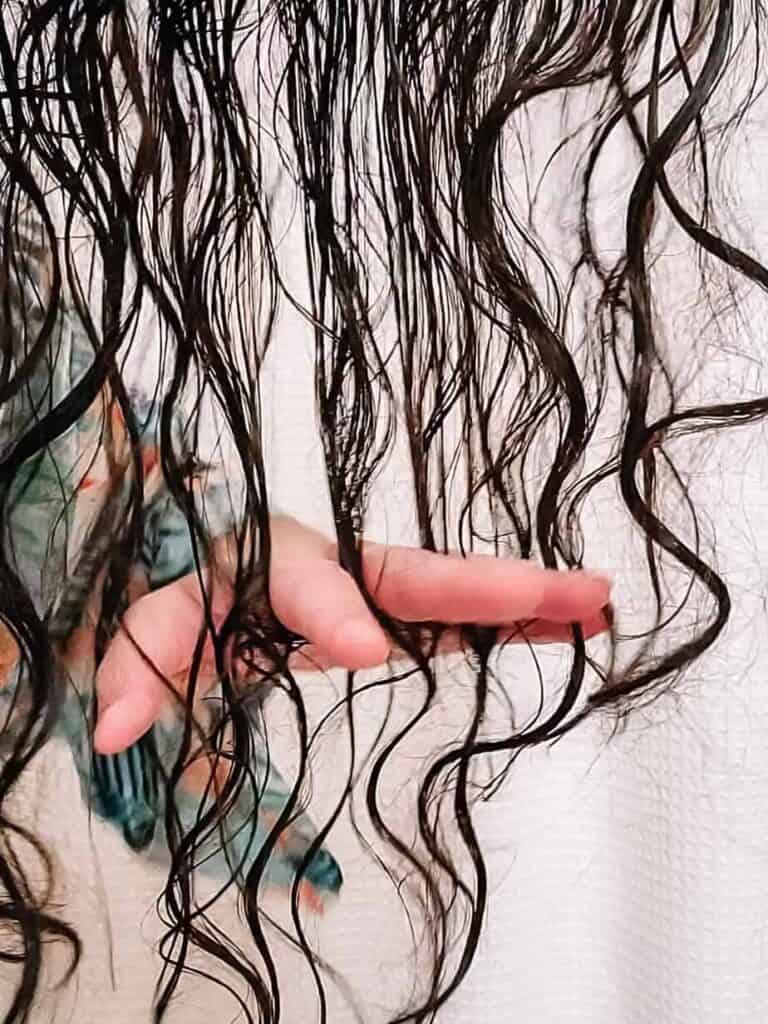
Side Effects of Using Cetearyl Alcohol on Hair
Cetearyl Alcohol has been thoroughly tested and found to be safe for use in skin and hair care products with very few side effects. However, a small number of cases of allergic contact dermatitis have been reported.
If you have sensitive skin or are prone to allergies, it’s best to do a skin patch test before using a product for the first time.
The signs of an allergic reaction to Cetearyl Alcohol include:
- Redness
- Burning
- Stinging
- Irritation
If you see these or any other new symptoms after you use Cetearyl Alcohol, stop using the product immediately and seek medical advice.
Product Buildup
Overusing Cetearyl Alcohol can cause product buildup due to its creamy, oily texture, but you can avoid this by applying the products in moderation. If you have fine or straight hair, you might find these products are too heavy for your locks, and you’re more likely to experience buildup.
Using a clarifying shampoo once or twice a month will help remove any residue on your strands.
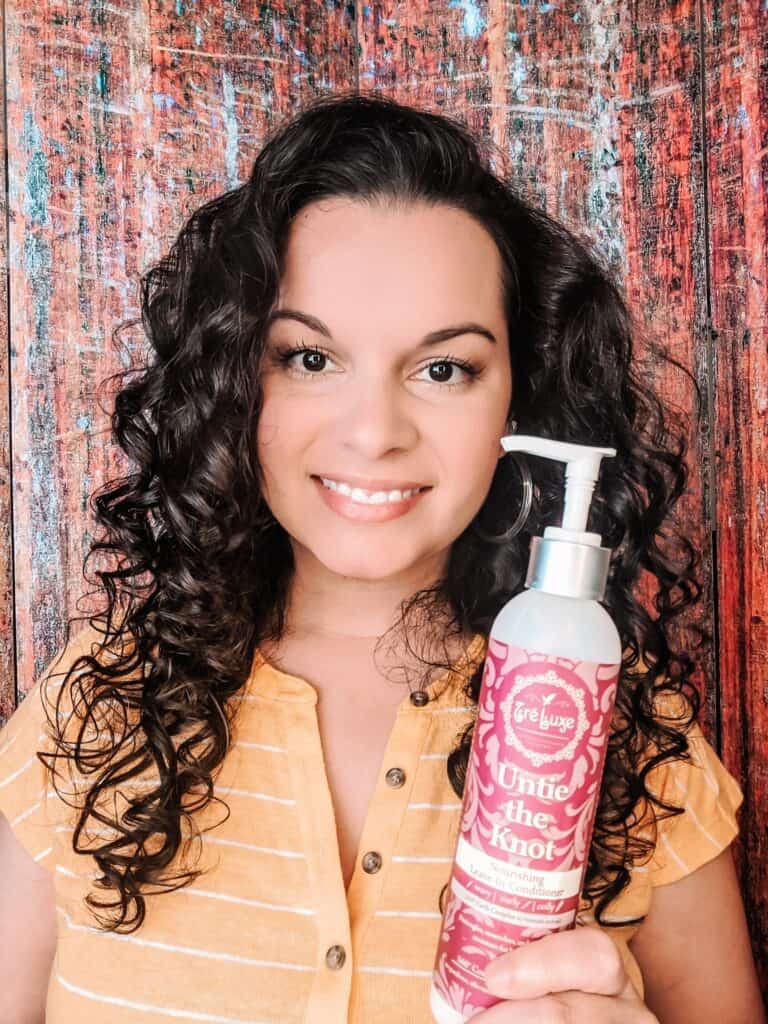
FAQs
If you’re still unsure about alcohol in hair care products, you might find the answers to these frequently asked questions helpful.
Does Cetearyl Alcohol Cause Buildup on the Hair?
Cetearyl Alcohol can cause buildup on your tresses, but this doesn’t tend to happen if you use it in moderation. However, the creamy texture of Cetearyl Alcohol can be too heavy for fine strands, so if you have fine hair, you may be more prone to build up.
Is Cetearyl Alcohol Curly Girl Method Approved?
Fatty alcohols like Cetearyl Alcohol and Stearyl Alcohol are derived from fats like coconut oil, corn oil, and palm oil. These benefit natural hair textures and are suitable for the Curly Girl Method.
Is Cetearyl Alcohol bad for colored hair?
Cetearyl Alcohol won’t harm your colored hair and will help make chemically processed hair softer and more manageable. On the other hand, short-chain alcohols like Ethanol have a drying effect that can damage chemically treated hair.
The Bottom Line
The idea that all alcohols are bad for hair is a widespread misunderstanding, but actually, it completely depends on the type of alcohol.
If you have curly, dry, or damaged hair, it’s a good idea to avoid short-chain drying alcohols like Ethanol and Alcohol denat.
However, a long-chain fatty alcohol like Cetearyl Alcohol, Cetyl Alcohol, and Stearyl Alcohol is very beneficial for hair. They don’t strip the hair’s natural oils or dehydrate your locks – they hydrate your hair, making it softer, sleeker, and more manageable.
Cetearyl Alcohol is naturally present in plants like corn, soy, and coconuts, and is found in a wide range of hair and skincare products. If you spot this ingredient in your favorite shampoo, conditioner, or hair mask, you don’t need to worry.
It’s a valuable addition to your hair care routine that will nourish your hair and help it look and feel fabulous.
